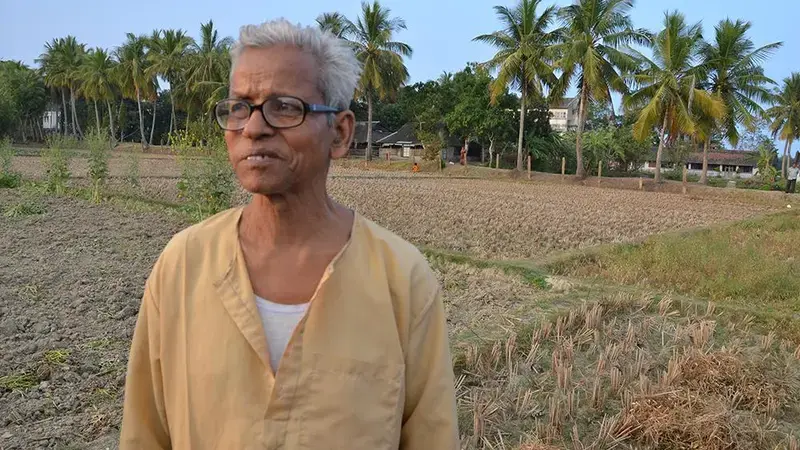Farming fallow land with improved agro-technologies

Cultivating land left fallow after the rice season is boosting lentil production across South Asia — helping to reduce import dependence, strengthen food and nutrition security, and increase farmer incomes.
Pulses make up a crucial part of the diets of the people of India, Bangladesh, and Nepal, yet all three countries run a deficit in providing them to their populations. For example, while India alone consumes one-third of the global output of pulses, and is also its largest producer, the country is also the world’s largest importer of the product. The dilemma hits at the core of one of South Asia’s food security challenges: housing the world’s most densely populated area while having only one-twentieth of the world’s land.
To address the problem, ICARDA and NARES partners in India worked to cultivate the fallow fields that follow a rice harvest and leave so much land — over 14.3 million ha in South Asia — empty after the rice season. By using improved relay cropping techniques, as well as developing early-maturing, high-yielding, and disease-resistant varieties, lentil production increased significantly throughout the area.
Improved agro-technologies included the application of lime and boron in acidic soils, a higher seeding rate (50 kg/ha), rhizobia and fungicide seed treatments, pre-planting watering, and applications of insecticides and fertilizers. Additionally, the project included capacity building for farmers, extension personnel and regional scientists to ensure successful technology transfers and large-scale training for lentil and seed production in order to improve uptake of the techniques.
Lentil production increased significantly, improving food sources for rural farm families as well as providing additional income. ICARDA continues to work with the Indian Council of Agricultural Research, the Bangladesh Agricultural Research Institute, and the Nepal Agricultural Research Council to promote further uptake of effective relay cropping.
Financial support is provided by NFSM , OCP-Foundation , and IFAD .
